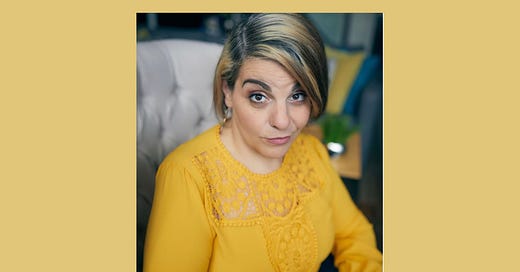August 22, 2022
There is a lot of advice in the world about how good being out in nature is for your well-being.
I love nature but more in theory than actual practice because the bugs and grass and heat and unpredictable weather conditions make it a sensory nightmare for me.
I’m a huge fan of Thoreau, who wrote in Walden:
“We need the tonic of wildness — to wade sometimes in marshes where the bittern and the meadow-hen lurk, and hear the booming of the snipe; to smell the whispering sedge where only some wilder and more solitary fowl builds her nest, and the mink crawls with its belly close to the ground.”
Uh-huh. Sure.
Being in nature has been recommended to me by book after book, coach after coach, and well-meaning friend after well-meaning friend.
AND I TRIED! (for like decades)
But in reality, being in nature seriously stresses me out. There are a lot of sensory issues to manage outside (sounds, wind, bugs landing on me etc.). If I'm trying to relax, this is a serious impediment.
My sister walked her dog this weekend and fell into a fire ant nest. See what I mean?? This would not help me connect with my deepest truths, I’m sure of it.
I am an indoor cat, 100%.
I love looking at nature, but usually only in books or on my screen…As soon as I’m outside, I’m like, “It’s the wrong temperature; it smells weird, and there are too many bugs and noises.” The outdoors is definitely a ‘sometimes-food’ for me.
One time I went on a friend's yacht in the Caribbean; it’s one of my most treasured outdoor experiences. I was inside. On a couch. With a book. And air-conditioning and wifi…drifting off on the sea. (Then we docked at a restaurant, hopped off the boat, and grabbed lunch and drinks! Perfection!)
In my swanky apartment in the city, with floor-to-ceiling windows overlooking a courtyard garden, I can enjoy the beauty of nature while I can control things like the textures of the furniture, the temperature, and sound to a greater extent than out in nature. (I find blasting my music while looking at nature to be a much better soundtrack than cicadas.)
Rather than taking a walk, my happy place is curled up on my couch with my partner looking at the Chesapeake Bay. From there, I can find the perfect temperature, wrap myself in multiple fuzzy blankets like a burrito, and read or write with him by my side.
For me, this is more relaxation and connection than I can ever find in nature, where I am on guard and always seconds from an autistic meltdown.
I bring this up because, as coaches and consultants, we give a lot of advice that SOUNDS GOOD to us. But if you don’t really understand your client, that advice could be counterproductive. I wanted to be a “good” client for so long that, in many ways, it took me away from my truth. I judged myself (a lot) for not wanting to hike or camp.
I was told everything worth having happened outside of my comfort zone, so I pushed myself outside of my comfort zone, and the path to “everything good” did not magically appear.
Everything good happens when you are honest with yourself about who you are and what you need and desire.
If nature helps you find that, GO OUT IN NATURE, by all means!
For my part, I’ll be conquering worlds from my couch. I’m not afraid to be uncomfortable, but I’m also not throwing my nervous system into chaos unless there is a payoff to that actually works for me.
You do you, boo.
Are you an ‘indoor cat’ too? Tell me about it in the comments!
Related episodes from The Autistic Culture Podcast:
Episode 46: Cats are Autistic
Episode 21: Dino Nuggets are Autistic
*Background note: Most people only have a vague (often, highly stereotyped) version of autism in their minds and believe that autistic children need (traumatic) ABA therapy to "overcome" their disability and appear "normal." After receiving an autism diagnosis in her thirties, Dr. Angela Lauria realized that she too had been mostly unaware of what it means to be Autistic. Like so many people, she started her journey by first gathering information and resources from the omnipresent (and problematic) Autism Speaks, but eventually moved away from the 'autism community' in favor of the 'Autistic community,' where she found kinship with other Autistic individuals and learned to let go of pathologizing language like 'autism spectrum disorder' and 'Asperger's Syndrome.' This autism blog (and her autism podcast, "The Autistic Culture Podcast") is meant to share her lived-experience insights to support others on a similar journey of diagnosis, understanding, and community. Embrace Autism--differences are not deficits.





